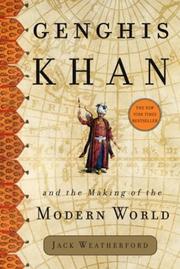

Weatherford portrays this key choice as “the most noticeably terrible throughout the entire existence of the Mongol Domain” (144). At the gathering in 1229, Ogodei states that he likes to attack China as opposed to Europe, yet rather settles on the choice to attack in the two headings. After his diplomats to the Sovereign of Kiev were killed, Subodei had vanquished the Russians in fight-the main significant thrashing of an European power by an Asian armed force since the hour of the Huns, one thousand years sooner. By 1223, he had arrived at the Russian-talking urban communities of present day Ukraine. He had experienced the realm of Georgia and vanquished its mounted force armed forces. In 1221, Subodei had “found” Europe while seeking after the sultan of Khwarizm to the most distant side of the Caspian Ocean. His general, Subodei, recommends Europe, at that point obscure to most Mongols. He calls a board to decide potential focuses for success. Despite the fact that his standard, particularly locally, could be considered “a significant advance away from the arrangements of Genghis Khan” (137), Ogodei proceeded with his dad’s successes so as to keep up dependability at home and keep up his own pay. Ogodei institutionalizes loads and measures, keeps up control of Focal Asia, and assembles streets all through his domain. This proportion of strict resilience, Weatherford notes, is amazing for now is the right time. Weatherford portrays the advantage of Ogodei’s royal residence, however not all of Karakorum is unadulterated lavishness: Ogodei additionally constructs places of love for the few unique religions of his adherents and spouses. He names his capital Karakorum Weatherford contributes that it is now “damned,” as it was picked for the characteristics that make a decent camp, yet not a decent city (134). In spite of a decline in benefits from tribute, Ogodei chooses to construct a lasting capital city, contradicting a very long time of Mongol convention. Rebellions emerge in recently vanquished realms, including China, and in 1230, Ogodei dispatches his armed forces to quell them. As of now, Weatherford states, the realm has dropped from Genghis’ beliefs: “he smashed celebration of Ogodei Khan’s initiation set the standard and the model for his standard, and… it controlled the soul of the domain also” (133). His introduction is set apart by substantial drinking.

“The Revelation and Triumph of Europe” In the late spring of 1229, Ogodei is introduced as Incredible Khan and liberally disseminates wealth to his subjects.


 0 kommentar(er)
0 kommentar(er)
